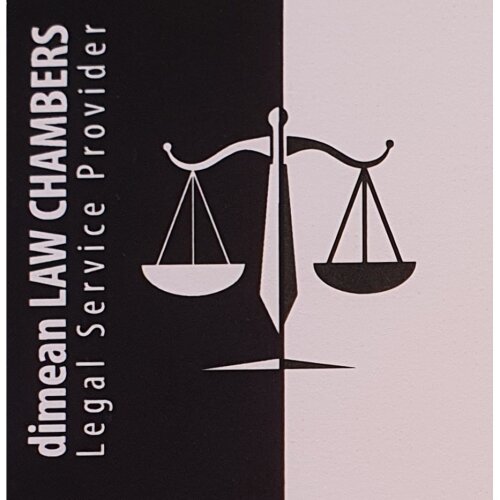Best Divorce & Separation Lawyers in Colombo
Share your needs with us, get contacted by law firms.
Free. Takes 2 min.
Free Guide to Hiring a Family Lawyer
List of the best lawyers in Colombo, Sri Lanka
Sri Lanka Divorce & Separation Legal Questions answered by Lawyers
Browse our 1 legal question about Divorce & Separation in Sri Lanka and read the lawyer answers, or ask your own questions for free.
- Divorce
- When getting divorced, the husband has sold out all the properties belonging to him before finalizing the divorce. Any law like in other countries that the wife to 50% of the properties belongs to the husband as at last date they stayed together?
-
Lawyer answer by SB Law Asia
Our firm (SB Law Asia) is based in Bangkok, Thailand and we would be pleased to assist you if you require legal services in this jurisdiction.
Read full answer
About Divorce & Separation Law in Colombo, Sri Lanka
In Sri Lanka, the law governing marital separation such as divorce and legal separation is commonly known as family law. With regard to divorce, it is regulated separately by laws established for each recognized religion. For instance, the law governing divorce for native Sinhalese, who are mainly Buddhist, is the Kandyan Marriage and Divorce Act. For Tamils, who are mainly Hindu, it's the Jaffna Matrimonial Rights and Inheritance Ordinance and Marriage Registration Ordinance, and for Muslims, it's the Muslim Marriage and Divorce Act. The General Marriage Registration Ordinance applies to Christians and Civil marriages. The divorce procedure in Colombo, like the rest of Sri Lanka, is usually a complex and sensitive process requiring expert legal advice.
Why You May Need a Lawyer
You may require the services of a lawyer in cases where there are disputes over property distribution, child custody and visitation, alimony or spousal support, and even in instances where there's difficulty in serving divorce papers to the other party. A lawyer can also guide you on how to file for divorce, respond to a divorce petition, and represent you in court during the trial or settlement negotiations.
Local Laws Overview
In Sri Lanka, the ground for divorce varies depending on the personal laws applicable to each party involved. However, there are common grounds that apply in most cases; these include adultery, malicious desertion, and incurable impotence. In some instances, parties may also get a legal separation instead of a divorce, which allows them to live separately without ending the marriage. Divorces can be filed either mutually or unilaterally.
Frequently Asked Questions
1. How long does a divorce take in Colombo, Sri Lanka?
The time frame for obtaining a divorce in Sri Lanka is not fixed and depends on various factors like the complexity of the case, the court's schedule, and whether the divorce is contested or not. On average, it could take anywhere between 6 months to several years.
2. What is the process for filing a divorce?
The process begins with a petition for divorce filed by one or both parties in the District Court. This is followed by the delivery of the petition to the other party (service), response to the petition, negotiation for settlement, and finally a trial if there's no agreement. If the court is satisfied with the evidence, it will grant a decree nisi, which becomes absolute after three months.
3. How is property divided in a divorce?
Property division in a divorce is typically decided based on the contributions of each party towards the acquisition of such property. The court takes into account both direct and indirect contributions.
4. How is child custody decided?
Child custody is determined by the court in the best interests of the child. The court considers factors such as the parents' capacity to care for the child, the child's own wishes (if of appropriate age and maturity), and the existing bond between the child and each parent.
5. Do I need to appear in court for a divorce?
Yes, in most instances, you will have to appear in court, especially if there are disputed issues. However, in an uncontested divorce where both parties agree on all issues, court appearances may be minimized.
Additional Resources
If you need more information on divorce and separation, you can consider reaching out to Sri Lanka's Department of Government Information. The Legal Aid Commission of Sri Lanka can also be helpful for those who need legal services but cannot afford them. Various NGOs like Legal Aid Foundation also work in the field of family law.
Next Steps
If you require legal assistance in divorce and separation, you should start by searching for a lawyer who specializes in family law and has a deep understanding of the personal laws applicable to you. Prepare a list of questions for your lawyer related to your case, such as the potential outcome, expected costs, and the general process. Remember to carry all relevant documentation when meeting with your lawyer.
Lawzana helps you find the best lawyers and law firms in Colombo through a curated and pre-screened list of qualified legal professionals. Our platform offers rankings and detailed profiles of attorneys and law firms, allowing you to compare based on practice areas, including Divorce & Separation, experience, and client feedback.
Each profile includes a description of the firm's areas of practice, client reviews, team members and partners, year of establishment, spoken languages, office locations, contact information, social media presence, and any published articles or resources. Most firms on our platform speak English and are experienced in both local and international legal matters.
Get a quote from top-rated law firms in Colombo, Sri Lanka — quickly, securely, and without unnecessary hassle.
Disclaimer:
The information provided on this page is for general informational purposes only and does not constitute legal advice. While we strive to ensure the accuracy and relevance of the content, legal information may change over time, and interpretations of the law can vary. You should always consult with a qualified legal professional for advice specific to your situation.
We disclaim all liability for actions taken or not taken based on the content of this page. If you believe any information is incorrect or outdated, please contact us, and we will review and update it where appropriate.















